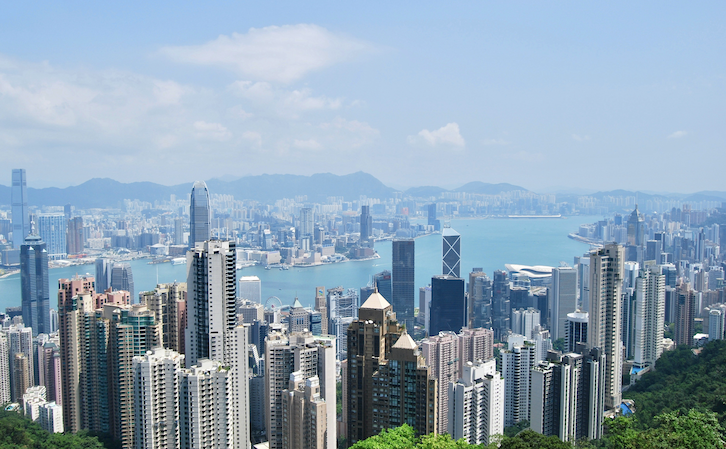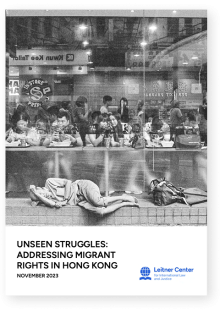A diverse range of actors from civil society and academia working in and out of Hong Kong are involved in the UPR. For the 2024 cycle the Leitner Center for International Law and Justice focussed it’s submission based on research undertaken in 2023 on the situation of displaced migrants, migrant workers and children in Hong Kong. AccessInfo was a critical tool to assist in gathering data from the Hong Kong Government for the purposes of the research and submission.

Hong Kong was a colony of the United Kingdom until 1997 when it was handed back to the People’s Republic of China in 1997. Hong Kong and Macau were given the status of Special Administrative Region under China’s constitutional principle of One country, Two systems. Due to this status, the United Nations considers Hong Kong separately but a part of China for the purposes of examining its human rights record.
There have been 4 cycles of the UPR for Hong Kong to date.
For the third cycle, there was a coalition of more than 45 Hong Kong-based civil society organisations and international NGOs, called the Hong Kong UPR Coalition. It was founded in 2017 to assist civil society with the UPR process. The organisations worked together to increase accountability and transparency of the Hong Kong government’s handling of human rights issues and raise the international community’s awareness about the human rights situation in Hong Kong.
/ Leitner Center’s UPR submission
/ Latest Research

Nov 2023 | EN
To support the 2024 UPR examination of China, the Leitner Center for International Law and Justice at Fordham law school, Fordham University, explored how degrading human rights protections in Hong Kong are having a disproportionate impact on migrant domestic workers, immigration detainees, refugees and asylum seekers, and migrant children.
These findings were published in the report “Unseen struggles: Addressing migrant rights in Hong Kong,” which made recommendations for how China and Hong Kong authorities can improve the lives of these marginalized groups. They were also developed into a stakeholder submission for the UPR.
These issues have been exacerbated by the silencing of Hong Kong’s once vibrant civil society amid a shifting political landscape and the chilling effect of the Beijing-imposed National Security Law, which is restricting civil liberties, democracy and freedom of speech. The March 2024 introduction of the new national security law, Article 23, further deteriorates human rights in Hong Kong.
/ UPR submissions from other organisations
/ Hong Kong UPR Coalition’s achievements
Between 2017 and 2019, the Hong Kong UPR Coalition:
/ UPR resources 2017-2022
